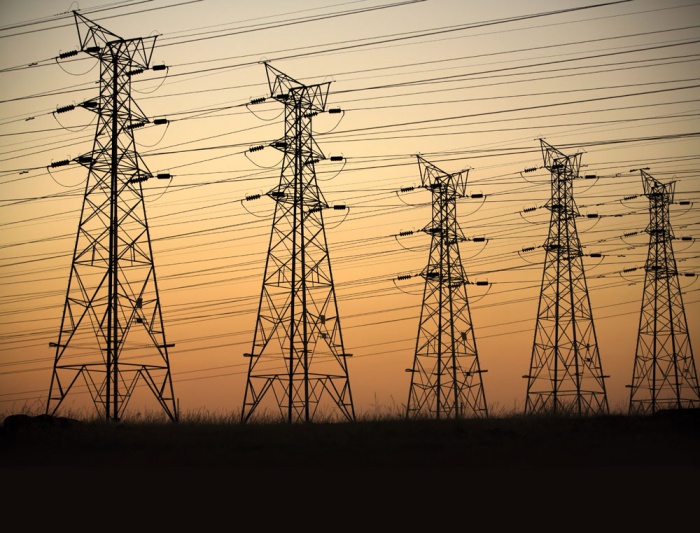The year 2016 was a very challenging year for Nigeria power sector, which had to battle with the destruction of gas pipelines in the Niger delta, recession, scarcity of forex and others.

Same period we experience the increase in electricity tariff which kick off on February 2016, same month we experience a new peak record in electricity generation about 5,074.70 MW. Also high hopes and expectation where placed on the shoulders of the Minister of Power, Babatunde Fashola.
However, during the third and fourth quarter of 2016, Nigeria Power Sector performed woefully, records obtain by energywatchng showed a high number of 28 system collapses, generation dropped drastically to as low as 48.3MW recorded on the 16th of October 2016. From Port Harcourt to Kebbi, Kano to Oshogbo, Sapele to Umuahia, Lagos to Sokoto and Akure to Abakiliki, the story is the same: No power while consumers pay for darkness.
Today, the general feeling is that the defunct Power Holding Company of Nigeria, PHCN, has performed better than the electricity Distribution Companies, DISCOs, and Generation Companies, GENCO.
Meanwhile, many concerned individuals and groups are calling for a review of the privatization of the assets of the PHCN.
Information obtained by energywatchng from NESI, shows that the average daily revenue loss at N1.5 billion, said gas constraint remained one of the major challenges facing the electricity sector.“It explained that the N534 billion amounts to the value of electricity lost on account of the challenges, part of which could have been used to bridge the liquidity gap in the power sector, estimated at N1trillion.
Already, the sector is finding it difficult to access more loans from Nigerian banks due to their inability to meet the payment obligations for previous debts. “The situation will also affect the capacity of the power firms to improve on electricity supply to consumers for domestic and industrial uses. “NESI said in its daily statistics on energy losses that the industry lost N1.525 billion on December 24, 2016 alone. “It also disclosed that about 12 power stations could not produce electricity during off-peak period under the review. “Statistics from the National Control Centre,
Osogbo showed that Afam IV-V, Geregu Gas, Alaoji National Integrated Power Project, Olorunsogo Gas, Odukpani NIPP, Okpai, Ibom Power, ASCO, AES, Omoku, Rivers NIPP and Gbarain power plants could not produce a single megawatt on December 25, 2016. “Nigeria has installed power output of 11,165mw, of which the 12 plants have a combined capacity of 2,035mw
Making their case, the power sector investors, on the aegis of Association of Nigerian Electricity Distributors, ANED, say they may be compelled to declare force majeure to protect their investments.
Force majeure refers to an irresistible force or unforeseen event beyond the control of an organisation making it materially impossible to fulfill an obligation. Explaining some of the various agreements yet to be honoured by government, ANED Executive Director, Research and Advocacy, Sunday Oduntan, said the two parties agreed that with base loss studies completed, there should be cost reflective tariffs from day one as specified under the performance agreement. However, this never happened as R2 customer class was politically frozen and collection losses removed, in 2015. Consequently, sculpting or under-recovery of cost will result in N164 billion revenue shortfall, for the period of 2016 through 2018, just as delay in reflecting costs means a growing increase in deficits.
ANED listed tariffs reflecting reality as another government commitment to investors. However, it explained that there has been unrealistic generation projections as inflation increased from assumption of nine percent to the current 17.9 percent.
The government was said to have agreed to a credit worthiness support of power purchase agreements by the Nigerian Bulk Electricity Trading, Plc. (NBET). In the case of the GENCOs, they are owed in excess of N184 billion.
Apart from that, increased access to gas supply was agreed upon, but the nation has witnessed little or no improvement in gas supply as there has been pipeline vandalism, resulting in an average of 50 percent reduction in generation, for the period of May, June and July 2016 alone.
ANED further explained that government had reneged on its agreement to increase generation levels from 2014 to 2016 to between 5,000MW and 7,500MW, whereas the present generation level stands at about 2,000MW to 3,000MW, due to gas pipeline vandalism and transmission wheeling constraints.
It pointed out that whereas government committed to a subsidy support of N100 billion for the power investors, the promise has not been met under the multi-year-tariff order, MYTO, 2.
According to ANED, power investors have little or no access to finance as the banking sector has been over exposed to oil, gas and telecommunication sectors by over N3 trillion debt. It averred that if government does not take urgent steps to address the issues raised, the power investors will have no option than to declare a force majeure.
“In spite of these challenges, the DISCOs have made progress. We have reduced technical and commercial losses (even with the limited capitalisation). We have improved billing systems. We have improved ICT and GIS infrastructure. We have set up call centres addressing over two million queries from customers. We have reduced down time due to improved network maintenance and upgrades. We have recruited thousands skilled personnel, significant grid metering achieved”, the group said.
In a seeming reaction to ANED’s allegations, the Minister of Power, Works and Housing, Babatunde Fashola, accused the DISCOs of undermining the efficient and effective regulation of the electricity sector by the NERC.
According to the Minister, when NERC wanted to activate their contractual obligations as contained in the Transitional Electricity Market, TEM, the DISCOs dragged the regulatory agency to court and frustrated its efforts.





